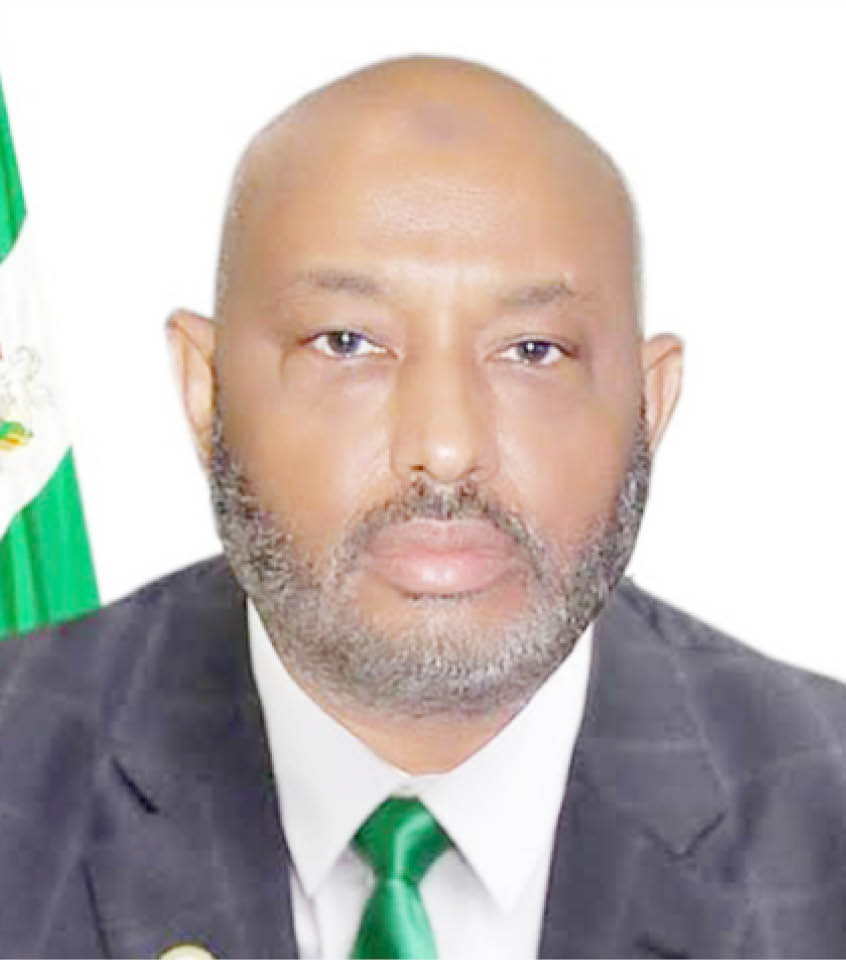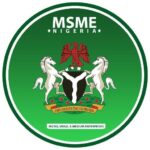One of the major challenges at the Nigerian ports has been the lack of a digitised system to keep track of transactions carried out by both importers and exporters.
As such, Electronic Demand Notes and Electronic Demand Receipts (EDER) is one of technologies introduced by the Standard Organisation of Nigeria (SON) to ensure paperless transactions at Nigerian ports.
The transitioning to the electronic demand note and receipt, as well as electronic port and border operations, is said to mitigate challenges faced by business owners and promote greater efficiency in service delivery.
How EDER works
The EDER is the electronisation of the process of payment and that of collection of receipt already in place.
- Niger Republic: This coup must not stand
- Worsening political, judiciary corruption worrisome – Ex-AIG
The process was introduced by the Standards Organisation of Nigeria to give any service or prices, which are already programmed anytime a demand is issued
After the demand, the Demand Note instead of manual will be electronic. That electronic platform is then linked to Remita, so before anybody, importer or exporter, goes to the bank, the bank is already aware of what one is paying for.
Subsequently, the Remita platform will send a message to the electronic receipt platform and the receipt will be issued to you electronically.
The prices of any demand are standardised and would not be compromised.
Also, any customer/client that will be coming will no longer move from office to office to collect receipts. This is because a customer who wishes to make any payment will be issued the Demand in the comfort of their homes, and they will make payment electronically from the comfort of their homes, receive the payment receipt and goods or services will be delivered to their homes.
Consequently, the innovation, which is an electronically one-stop, has been targeted to make transactions simple for people doing business with the SON. This is because there are back-ends to it, which also have a charter.
For instance, when any customer asks for a service in the SON and pays for the service, the customer will be able to immediately identify and track the process because there are prices that are not automatically fixed as they are a function of range.
As a function of range, one needs to upload the subsidiary documentation that would warrant the price. As such, the customer needs to check the user department to be sure that what he puts in is correct. If it is correct and genuine, it will be allowed to be checked, approval given and then be returned to you ,which will enable one know when Demand Note and Receipt will be given.
EDER and ease of doing business
The Executive OOrder 001 on ease of doing business was signed by the administration of former President Muhammadu Buhari to erase barriers to efficient and effective business environment for Nigeria’s micro, small and medium enterprises.
Nigeria is now ranked 131 out of 190 countries. It was ranked 146 last year and moved up 15 spots on the global Ease of Doing Business index released by the World Bank.
Checks by Daily Trust on Sunday show that the essence of Ease of Doing Business order is for transactions to be processed at a determined time.
With the electronic process, customers are able to know and determine who is holding a particular transaction process, why it is being held and when the process will be completed.
According to Mr Aaron Tam-George, the director, finance and accounts at the SON, the major role EDER will play is first supporting service to the certification process.
“It will make the certification process in Nigeria for the goods the SON regulates to be made easy because we do not know how many other times we are going to compete with the people on the other end as it would mean commonality of standards and certification.
“This entails that what is certified overseas is automatically certified in Nigeria. If we do not have our processes streamlined to make it shortened electronically, we will not be able to compete with people who already have the process in place. So, it will be an advantage to our certification process,” he said.
Speaking to Daily Trust on Sunday on the resilience of the technology to cyber attacks, he further said, “The checks and balances of EDER is that the SON is using the very best languages; that is the technicality of it. It also has a strong electronic security system, which we subscribed from Israel.
“However, despite the system being hacker-proof, there is no electronic process and system you can say is 100 per cent secure, even in overseas, but what we are looking at the level of security it will take. And we will keep improving on it to make sure that new technology will keep on securing the platform attached to it.”
How EDER will benefit ordinary Nigerians
The SON had stated that the coming of the new technology would create more jobs for Nigeria.
Youth unemployment is put at 33 per cent, according to data from the National Bureau of Statistics (NBS).
The SON had stated that the electronic process it was deploying was indigenous in nature and had employed the services of Nigerians to operate it.
It also saves customers and business owners the stress of moving from one physical office of the SON to another, just to be granted certification. This is because certification and delivery of goods are being digitised, and it will make the cost of production and timing for production less.
On when it will be fully deployed, the SON had explained that the technology would be in phases.
“It is like a normal electronic process. We will not launch or deploy it once. It will be product by product so that we will also understand the pitfalls that will emanate from it in order to manage the crisis that might come from it. But I believe that by November we should have finished this process.
“We will stagger it process by process. We will take SONCAP, MANCAP then ports and border. We will take a week to resolve all the problems that will emanate from SONCAP and another week to resolve that of MANCAP, same to ports and border.
At the end of it all, as we are deploying we are also solving the sparks that would come from solving such introduction. This is because to introduce such things, normally, you have to have a war room,” the director-general of the SON, Malam Farouk Salim said recently.
He further noted that one of the major challenges in deploying the technology was Nigeria’s resistance to change, especially the one that leads to elimination of corruption.
“To electronise a system means that you are blocking leakages, which translates to blocking corruption. It is very difficult to remove a meal that someone is used to, which led to perceived resistance. If not anything, COVID-19 thought us the lesson that we must work from our homes.
“So, if you want to do a transaction for the SON, you do not need to come to our office to physically do anything. You will see that people will work from their different homes and the work of Nigeria will still be going on,” he further stated.
The SON had further explained that the new technology had nothing to do with charges, as it is not introducing new charges, warning Nigerians to be weary of mischievous elements that may want to take advantage of the new technology.
This explainer was produced in partnership with the Centre for Democracy and Development (CDD).

 Join Daily Trust WhatsApp Community For Quick Access To News and Happenings Around You.
Join Daily Trust WhatsApp Community For Quick Access To News and Happenings Around You.


